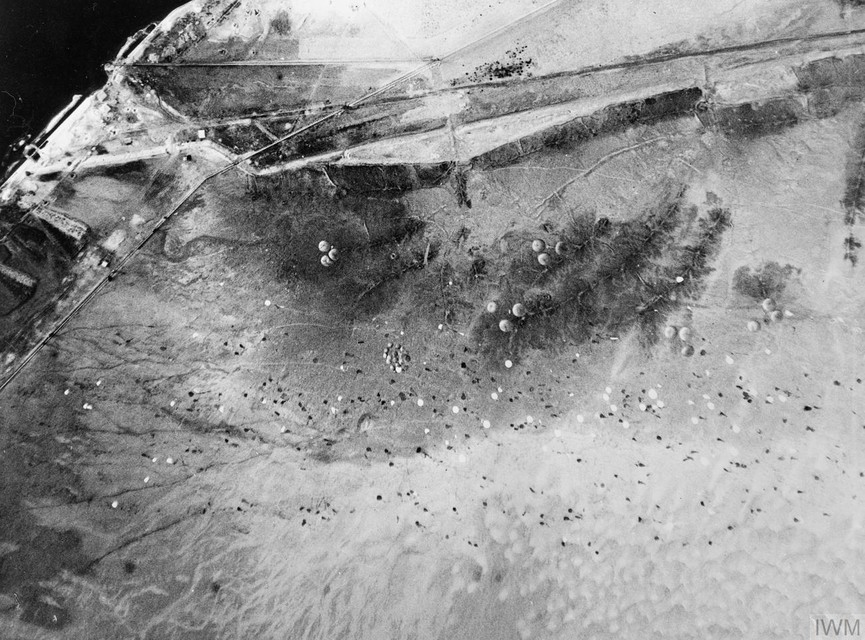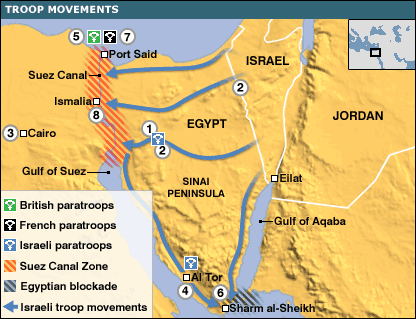Resolving the Suez Crisis:
Successful Debate & Diplomacy in the Cold War

French paratroopers leaving Egypt during the Suez Crisis, Bansoro.
French Intolerance

Algerian War for Independence, 1954-1962, AboutAlgeria.com
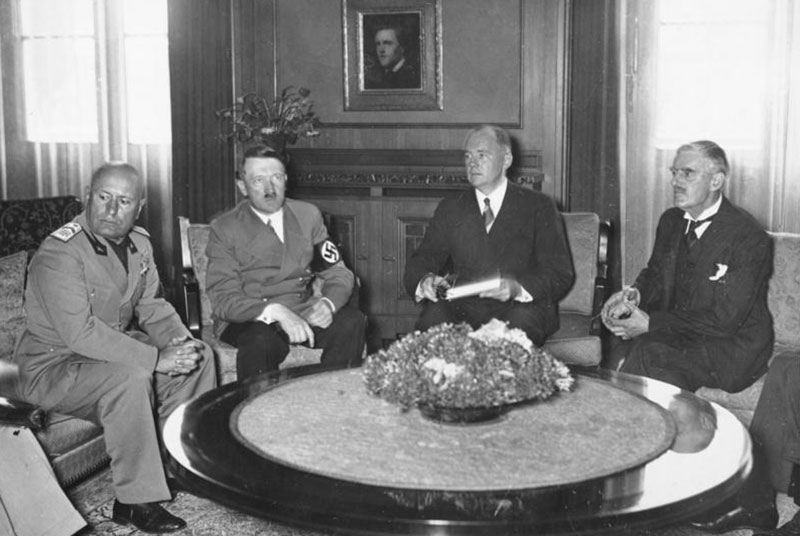
Munich Agreement for appeasement, Britannica.
France worried that Nasser would aid Algeria in their revolution by sending Soviet weapons, which would also expand Islamic influence formerly dominated by European powers. Guy Mollet, the Prime Minister, feared Egypt would form a united Arab nation similar to ancient caliphates, and so appeasement like with Hitler was unacceptable.
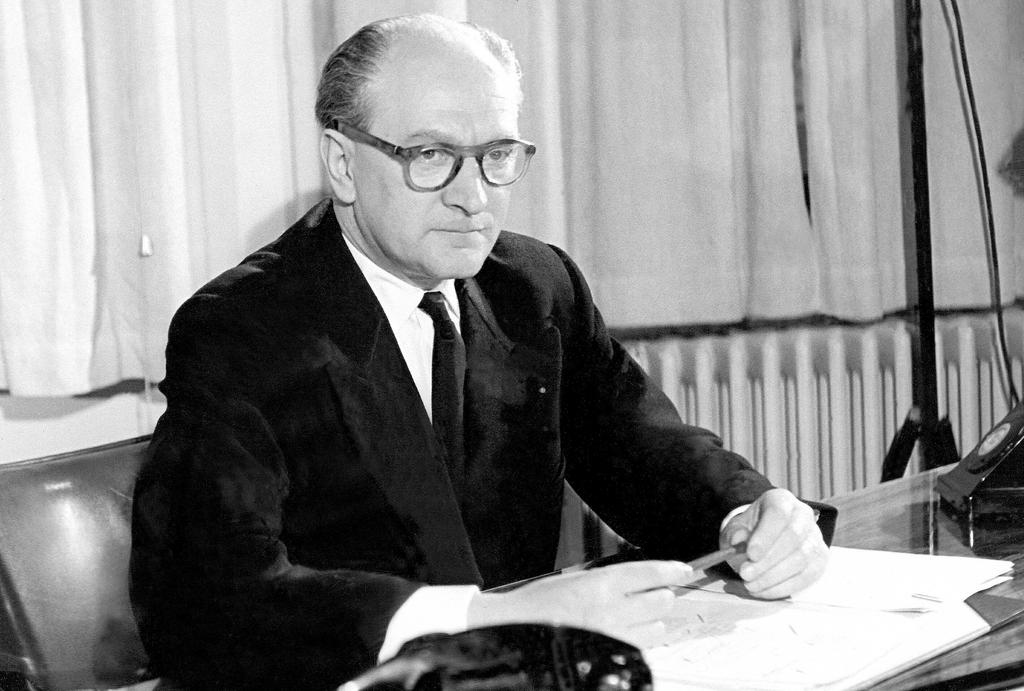
Guy Mollet, French Prime Minister, cvce.eu.
“All that [is] in the works of Nasser, just as Hitler’s policy [was] written down in Mein Kampf… Nasser [has] the ambition to recreate the conquests of Islam.”
~ Guy Mollet, Kissinger Diplomacy
Failed Canal Invasion
France sought to overthrow Nasser through joint action with Britain, but they also wanted both United States and UN support to justify force. On October 29th, France and Britain sent an Israeli army to invade the canal region; however, this ill-devised plan was called off on November 5th through a 64-5 UN vote. During the Suez Crisis, France was too reliant on U.S. aid, which illustrated France’s fall from a superpower that failed to negotiate favorable terms with Egypt.

Burning fuel installations after British, French, and Israeli attack, 11 November 1956, The Times of Israel.

The Parachute Regiment and Commandos at Port Said, Imperial War Museum.
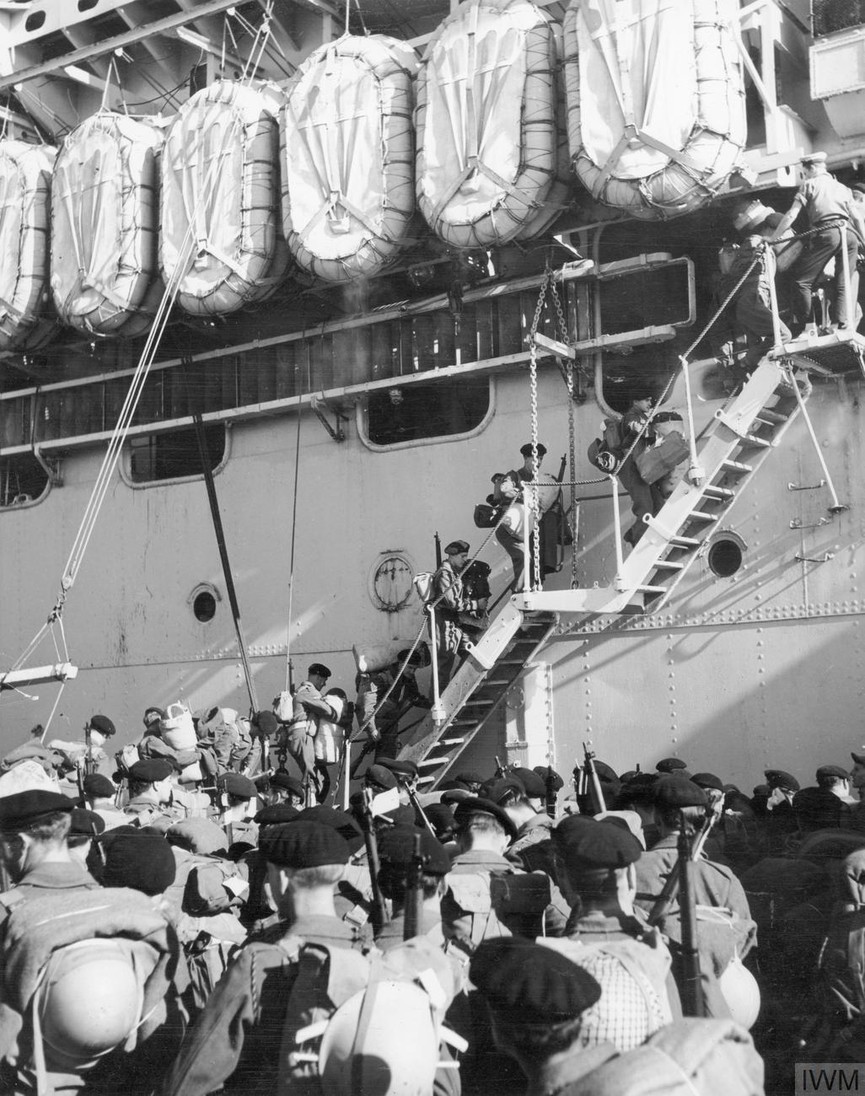
Royal Engineers boarding the HMS Theseus to withdraw from the Suez Zone, Imperial War Museum.
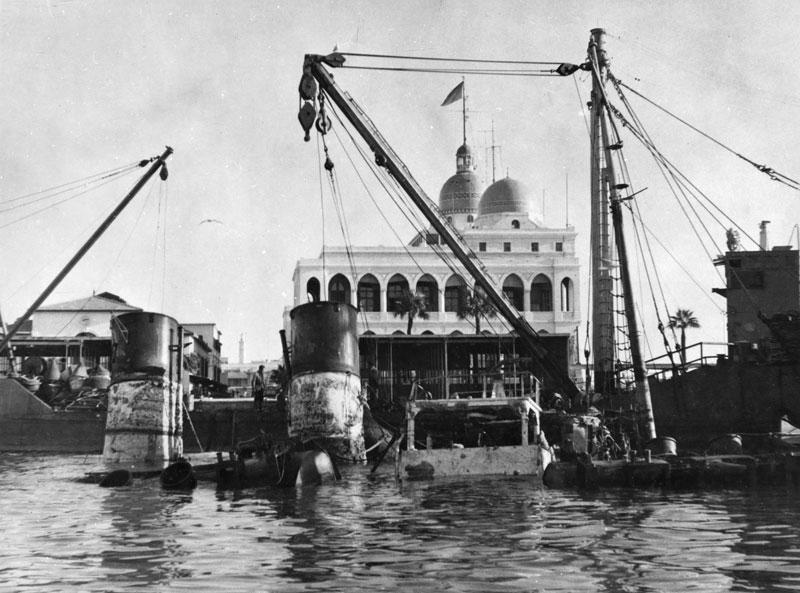
LCT 525 clearing the wreck from the Suez Canal, Imperial War Museum
"[T]he British and French were more concerned with matters of pride and prestige in seeking to maintain a dying colonial empire. Thus Anglo-French and American goals, as Dulles perceived them, were the same; the problem was that the Anglo-French strategy for achieving them was self-defeating."
~ Steven Freiberger, Dawn Over Suez
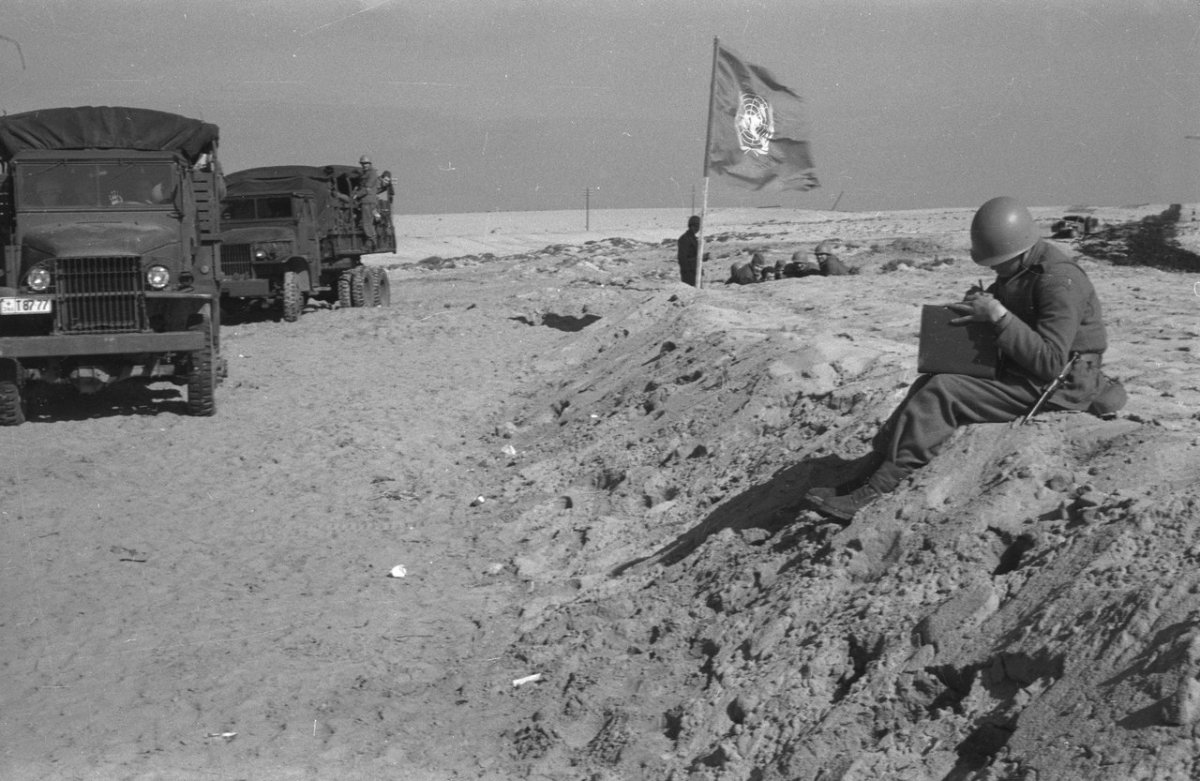
United Nations Emergency Force Peacekeepers at Sinai, Origins.
